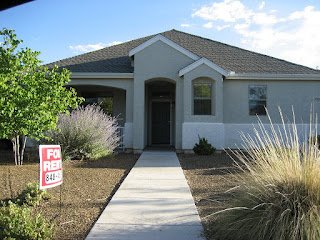 If you’re lucky enough to have more than one home, either from the family estate or an investment property, you should consider the benefits of turning it into a rental property. When it comes tax time, how you use and define your second property could make a big difference in your taxes. Far West Realty, your Prescott area property management professionals, brings you these suggestions as we near the end of this year’s tax season.
If you’re lucky enough to have more than one home, either from the family estate or an investment property, you should consider the benefits of turning it into a rental property. When it comes tax time, how you use and define your second property could make a big difference in your taxes. Far West Realty, your Prescott area property management professionals, brings you these suggestions as we near the end of this year’s tax season.
- First, you need to know the differences
- Second Home – If you make no attempt to rent out a property and use it exclusively for your own personal benefit, IRS may view it as a second home.
- Rental Property – If you never live or even vacation in a property, but hold it for investment purposes, IRS may view it as a rental home.
- Mixed usage – In many cases, the owners of a second property may use it as both a second place to stay and one to rent out occasionally.
When it comes tax time, if you have only considered your property as a second home, you may be eligible for certain benefits pertaining to property taxes, and you should speak with a tax accountant about possible pros and cons of mortgage interest and home equity loan interest deductions, the IRS cap of $1 Million in mortgage debt and $100,000 interest inequity interest, which may apply to the total of both, not just each individual property.
Renting out your second home may also have certain benefits
If you rent out your second property for more than 14 days a year, you may be able to claim it as a rental property. All interest incurred may be deductible, as well as expenses that relate to the property, including things like maintenance. Your tax accountant may find that you must only pay taxes on the profit (the difference between your income from the property and the expenses of the property). If you lose money on the home, you might then be able to use that loss to offset income from other investment real estate properties or claim up to $25,000 of the loss against other income. There are several stipulations in the tax laws.
If you choose to use your second home as both, you can probably allocate it based on your usage. For example, if you use it 25% second home and 75% rental house, you might still be able to deduct 75% of the rental expenses. However, if you report it as dual usage, losses may not be able to claim them. We re-emphasize, however, that you should talk with your tax professional for additional information on your specific case.
We hope that you have found this information helpful if you are thinking about buying a second home for either personal use or rental income. There are several things to consider if you plan on becoming an investment property owner, we suggest talking to your local Prescott property management professionals at Far West Realty. We can help you through the process and help ensure that you are making the best decision for your needs. Contact us today at 928-772-9400.
